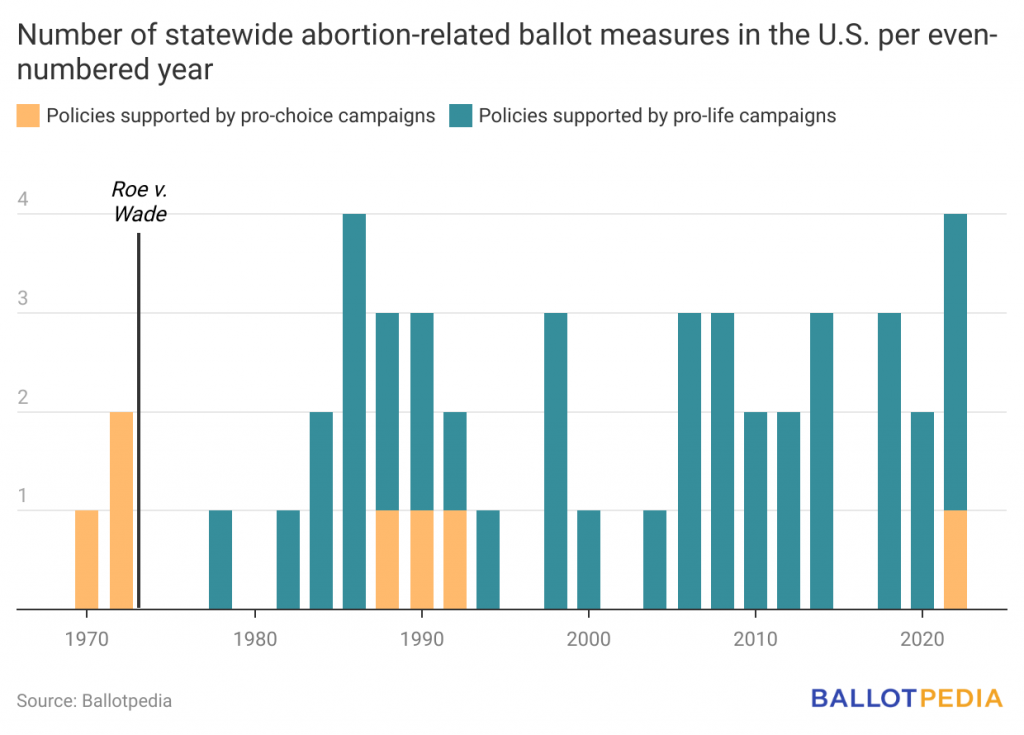Abortion has been a perennial issue for statewide ballot measures since Roe v. Wade in 1973. Since 2000, there have been just two general election cycles, 2002 and 2016, without abortion-related statewide ballot measures. In 2022, there will be at least four ballot measures addressing abortion — the most since 1986. If proponents of another abortion-related initiative in Michigan collect enough signatures to qualify for the ballot, 2022 will be the year with the most abortion-related measures on record. Legislatures could also propose ballot measures before their sessions end.
Campaigns surrounding abortion-related ballot measures describe their positions as pro-choice or pro-life. Examples of ballot measures described as pro-life include policies to ban abortion at various fetal development stages, define person or personhood to include fetuses, prohibit the use of public funds for abortions, require parental notification before a minor can obtain an abortion, and declare that there is no state constitutional right to abortion. Examples of ballot measures described as pro-choice include policies to legalize or expand abortion, remove restrictions on abortion, allow the use of public funds for abortion, and declare a state constitutional right to abortion.
Since 1970, there have been 51 statewide ballot measures addressing abortion. Most (84%) of them were designed to implement policies supported by pro-life campaigns. The remaining 8 ballot measures were supported by pro-choice campaigns, including this year’s Vermont Proposal 5.
Proposal 5 is the first abortion-related ballot measure since Maryland’s 1992 Question 6 that has the support of pro-choice organizations. Maryland Question 6 prohibited state interference with a woman’s decision to have an abortion before the fetus is viable. Vermont Proposal 5, which is set for a vote on November 8, would enact a state constitutional amendment declaring “an individual’s right to personal reproductive autonomy.” In Michigan, a campaign backed by Planned Parenthood and the ACLU is collecting signatures for an initiated constitutional amendment to establish a state right to reproductive freedom, which the initiative would define to include abortion.
Besides Proposal 5, voters will decide abortion-related measures in Kansas, Kentucky, and Montana in 2022. In Kansas and Kentucky, the ballot measures would declare there is no state constitutional right to abortions. In Montana, a legislative referral would state that “an infant born alive is a legal person” and that present healthcare providers shall provide “all medically appropriate and reasonable actions to preserve the [infant’s] life and health.”



